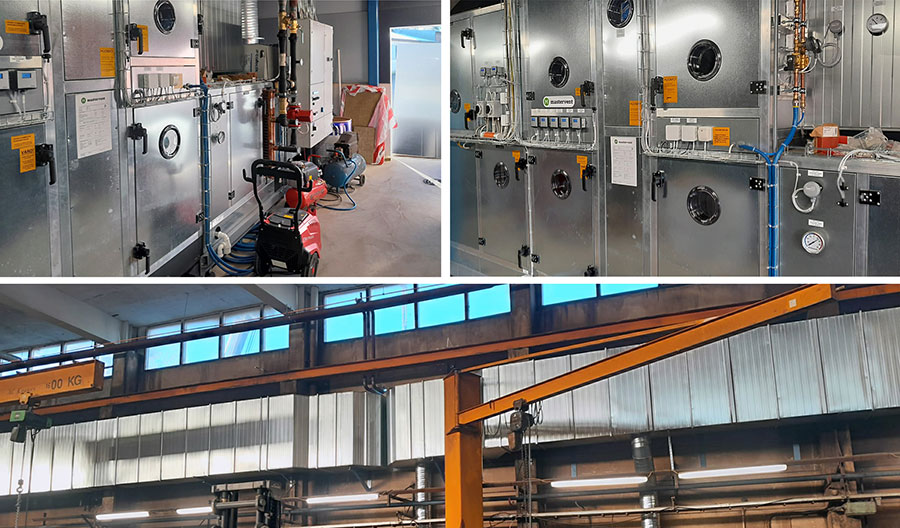
TK-Vilmet has large-scale investment projects in order to increase production capacity and enhance energy management. Recent acquisitions, such as the modern Tos Varnsdorf machine tools and the Hyundai HA006B welding robot station are part of the company’s continuous development. An important step is the abandonment of oil heating, which is part of the sustainable recovery of the economy and a response to the climate crisis and natural degradation. The heating renovation of the welding hall represents new technology and translates to economic savings for the company in addition to environmental impacts.
Machine shop TK-Vilmet is renewing its production environment
With the help of an energy subsidy received for the project, an investment related to energy saving and efficiency was carried out at TK-Vilmet, which promotes the introduction of new technologies. A new solution for the abandonment of oil heating is a waste heat recovery system of the welding hall, a pilot project of which was also carried out in Lehtosen Konepaja, a group company of LEKO Group. Positive experiences gained from the introduction and functioning of the system were transferred to the benefit of TK-Vilmet and the renovation was carried out in record time in approx. four months. In heat recovery of ventilation, the heat energy of the exhaust air is transferred back to the supply air and to the heating system of the property. This improves the energy efficiency of the building and reduces heat loss caused by ventilation.
Minimal energy expenses and good air quality
According to the experience gained, heat recovery saves up to 70% of energy and the consumption of heating energy is reduced by 30-40%. In addition to the minimum energy expenses, the air quality remains extremely good, as can be seen at Lehtosen Konepaja. In practice, the benefits are also noticed in the fact that during the winter, the heat does not escape from the property and during the summer, the ventilation is sufficient. There were two ventilators installed in the welding hall of TK-Vilmet and when the system was fully operational, it already paid itself back within two months. Plumbing and equipment installation in the welding hall did not hinder production, but it continued without interruption during evening hours and weekends. The decommissioned above-ground oil tank was delivered empty for metal recycling.


|
|
|


